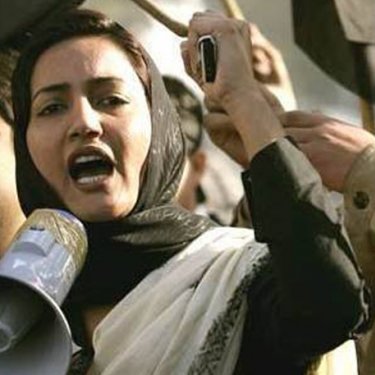Pakistan: online hate campaigns against BBC and Independent journalists

Reporters Without Borders (RSF) asks the Pakistani government to disown a major online smear campaign against the Urdu-language services of two British media outlets, the BBC and The Independent newspaper, and to prosecute those who have threatened their journalists.
Thousands of Pakistani Internet users have called for boycotts of these two Urdu-language services and have threatened their journalists in the course of a two-week-old hate and defamation campaign.
A video posted on 2 January on Siasat.pk, a news and discussion site that supports Pakistan’s ruling party and armed forces, attacks the “personal opinions and political inclinations” of BBC Urdu’s journalists. Shared by thousands of people on Twitter, it also accuses the BBC of pursuing an editorial policy that is “against the army and the government.”
The surnames, first names, jobs and Twitter account details of ten BBC Urdu journalists were posted online at the same time as the video. Analysis of the comments indicates that this campaign is being orchestrated in reprisal for several editorials and op-ed pieces regarded as overly critical of the authorities.
“Surprise”
One of the 10 journalists attacked in the video is Asma Shirazi, who received the Peter Mackler Award for Courageous and Ethical Journalism in 2014. “I’m told to be less critical,” she told RSF. “This is not the first time I’ve received such threats. I’m being bombarded because of my opinions. This online vilification is part of a grand design to silence professional and independent journalists.”
Shirazi said she had received threatening calls. By way of a threat, one caller told her that she could “get surprise” if she did not stop writing critical op-ed pieces for BBC Urdu. “I don’t know what surprise they could give me,” she said. ”One surprise might be the discovery of drugs or explosives in my car during a roadside search.”
Threats were also made against Pakistani journalists working for The Independent in late December after its Urdu website posted a story about the deaths of four Pakistani soldiers in a helicopter crash. They were criticized for not referring to the dead soldiers as “martyrs” – the term that the Pakistani armed forces try to impose in such cases.
When reached by RSF, the editor of The Independent’s Urdu-language news site confirmed that his staff were concerned about this hate campaign. Thousands of Internet users have been calling for the site to be banned using the #BoycottIndyUrdu hashtag.
“Extremely dangerous”
“These online hate campaigns, orchestrated by trolls at the military high command’s behest, not only threaten press freedom but are also extremely dangerous for the journalists who are the targets of the death threats,” said Daniel Bastard, the head of RSF’s Asia-Pacific desk.
“Calling for journalists to be murdered, with the aim of intimidating and silencing anyone critical of the authorities, is completely unacceptable. We urge the federal government to disown such calls, and we ask the prosecutor’s office to initiate proceedings against all those responsible for these threats.”
RSF accused the Pakistani authorities of complicity by failing to take action to stop the online harassment of outspoken women journalists in August 2020, when the harassment was condemned by a women journalists collective.
Pakistan is ranked 145th out of 180 countries in RSF's 2020 World Press Freedom Index.


